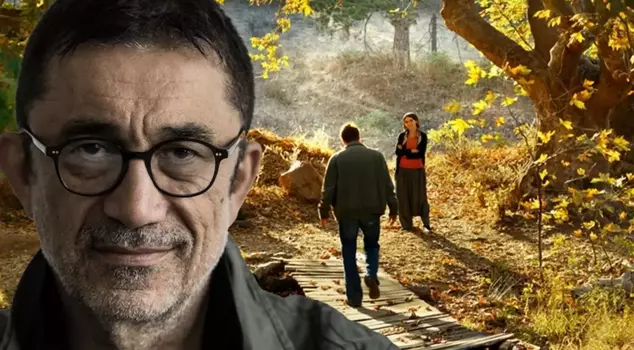
18.07.2025 12:31
In the case filed due to the unauthorized use of text in the film "Ahlat Ağacı," the first-instance court had ruled in favor of compensation. Upon appeal, the Istanbul Regional Court of Appeal reviewed the case and rejected Nuri Bilge Ceylan's request for a retrial. The court, which found the compensation claim of the author Polat Onat to be justified, decided that the amount awarded was fair.
One of the striking scenes in Nuri Bilge Ceylan's 2018 film "The Wild Pear Tree" centered around a years-long copyright lawsuit. It was revealed that the section in the film titled "A letter from a writer who does not want to attend the Provincial and Literature Symposium" belonged to the author Polat Onat, and it became the subject of a lawsuit in the same year.
Author Polat Onat filed a lawsuit against director and screenwriter Nuri Bilge Ceylan and the film's production company Zeyno Film, claiming that his text was used without his permission, seeking 40,000 TL in material and moral damages. The lawsuit, filed in 2018 at the Istanbul Intellectual and Industrial Rights Court, was concluded in 2022. The court determined that Polat Onat's text was used without permission and ruled for the "determination of infringement" and for the payment of material and moral damages to the owner of the work.
APPEAL APPLICATION NOT ACCEPTED
Following this decision, Nuri Bilge Ceylan and Zeyno Film appealed the ruling, and the case was taken to the Istanbul Regional Court of Appeal. The court, after completing its review, found the local court's decision to be in accordance with the law. The court panel stated that the compensation claim of author Polat Onat was justified and that the amount awarded was in line with the principles of rights and justice. Accordingly, the appeal application of Nuri Bilge Ceylan and Zeyno Film was unanimously rejected on the merits.
Author Polat Onat, whose opinions were sought on the matter, noted that although this case could serve as a precedent for authors whose works are used without permission in films to protect their copyright, he did not wish to comment further.